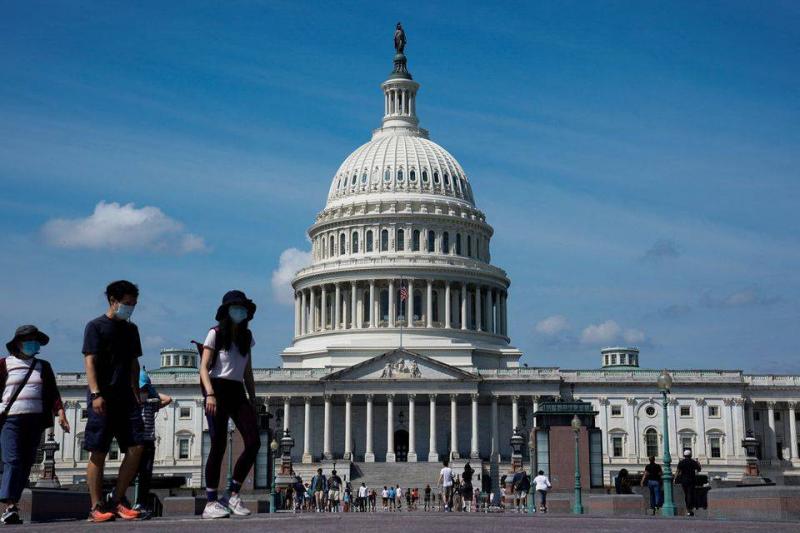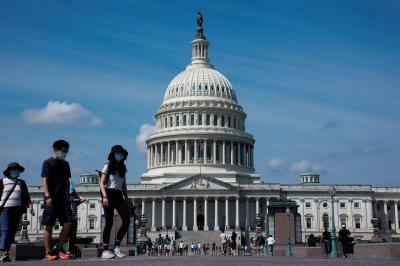I cannot believe that the United States was significantly aware of the negotiations that led to the agreement to restore diplomatic relations between Riyadh and Tehran. If the U.S. claims it has been aware since the announcement of the agreement on the tenth of this month, then it is natural for it to state such a thing. However, logic suggests otherwise, and reason does not align with this claim. Had the U.S. been aware, whether significantly or even slightly, of the negotiations leading up to the announcement, it would have used its knowledge in a different direction, specifically to undermine or sabotage the agreement. It would have leaked information about it in its major newspapers if it had missed the chance to disrupt or impede it from reaching its goal.
Perhaps the U.S. means it was aware of the other negotiations that took place in Baghdad and Oman, which were preliminaries that led to the final agreement. Most of these other negotiations were public, known and followed by all, including Iran, which spoke about their progress in achieving its objectives. However, the negotiations in Iraq and Oman are one thing, while the negotiations in Beijing that led to the agreement on the tenth of this month are entirely different. The ability of China to keep the news of the agreement hidden before its announcement remains a significant consideration in its calculations, as it is never easy in a world that is characteristically open for a country to conceal something to that extent.
Washington had its reasons for not being enthusiastic about finalizing the agreement. Among these reasons is the notion that if it were to be executed, it should be through them; if not, then certainly not by the Chinese.
We can discuss two reasons for the success of the agreement to restore relations between Saudi Arabia and Iran. One is observed and has had its effect before us, and the second we will need to await. The first reason is the complete secrecy surrounding this matter prior to the announcement. Without that secrecy, the Beijing negotiations would have merely become a third stop following Baghdad and Muscat. This does not mean that what occurred in the two Arab capitals was without value, but rather that the outcomes in Beijing differ from those in Baghdad and Muscat, as the essence of success always lies in the endings.
Furthermore, we must mention that the crossing decision taken by Sadat in 1973 succeeded for several reasons, foremost among which was his ability at the time to keep his decision confidential. When he achieved his objectives against Israel, the leaders in Tel Aviv questioned why this occurred, concluding that there were various reasons, with the secrecy surrounding Sadat's decision being one of the foremost causes.
The necessary secrecy was what brought the agreement to light and set it on its path, but the remaining commitment will rest on the second reason to take it to the distant goal. This second reason is Iran’s seriousness in turning what it has signed into reality. It must be capable of doing so if its intentions are genuine; signing is easy and not an issue, but the essence remains with the sincerity of intentions and the ability of that signature to withstand various tests, surpass obstacles, and fulfill the commitments made to the guaranteeing party.
From now until the next two months, we will need to follow the reopening of the embassies in the two capitals. This will be a first step but will also lead to further developments, and the Iranian government must prove that this time is not like the previous one, and that the intentions this time are what makes it different.
If the Iranian side reassesses its position where it stands at this moment, it will realize it has exhausted itself as much as it has exhausted the region. If it has overstretched several Arab capitals with its presence, the exhaustion has affected it equally, as it cannot change the laws of geography, nor escape what is imposed upon it and others.
There is no exaggeration in stating that Tehran will be under test in the coming two months, and the reopening of the embassies will mark the start of this test. The Iranian decision-maker will be tested against himself more than against others, and success in this test will depend on his ability to translate the intentions held in their hearts, from mere intentions in their essence, into tangible steps with the other side in the world of people.
The region cannot afford a setback in the agreement, nor bear the consequences of returning to square one. Iran has no option but to realize this and act accordingly, dispelling the caution that many around it still cling to as they look forward to its next move. Iran is capable of translating its commitments into reality, but this capability needs to be coupled with political will. This coupling will be realized if the government's decisions move from a revolutionary square to a responsible state circle.




